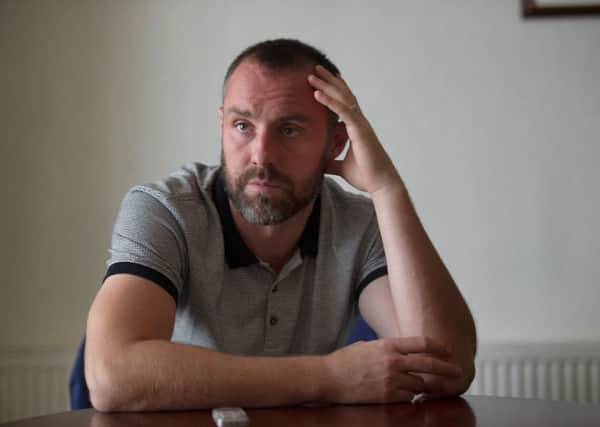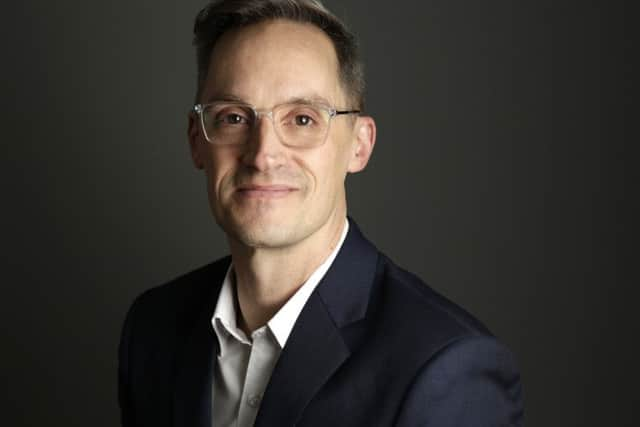Samaritans are there to listen – James Jopling


In fact, recent research by Samaritans found that while nearly seven in ten Scots men say talking about problems is a sign of strength, only a quarter said they always ask for help when they’re struggling. More than one in three said they wouldn’t ask for help because they prefer to solve their problems themselves.
Talking appears to be at risk of falling into the same category as eating our five a day and getting regular exercise – something we recognise as positive but that we still struggle to do.
Advertisement
Hide AdAdvertisement
Hide AdAt Samaritans, we know how big an impact talking can have. As the leading charity dedicated to suicide prevention in the Scotland, we believe understanding and tackling the barriers that stop people from asking for help is an important step to reducing death by suicide.


In 2017, 680 people died by suicide in Scotland. Of those, 77 per cent were men. Men aged 45-54 have the highest suicide rate of any group and in 2017 the number of suicides among this group increased for the third consecutive year.
Current Kilmarnock and former Scotland striker Kris Boyd became a powerful advocate for mental health after losing his brother to suicide. Earlier this year he backed our Real People, Real Stories campaign encouraging more men to speak openly about their struggles, saying: “There is still a lot of stigma that can make it hard for men to open up about mental health.
“We all need to do more so men feel comfortable enough to break the fear and speak out. We can all be a part of making that change, by taking the time to talk when we’re struggling or when we know someone who is, by being that listening ear or a shoulder to lean on.”
Encouragingly, our research found that more than half of Scots men said they usually felt better about a problem after speaking to someone. And 79 per cent agreed that talking about a problem could be life-saving. This suggests that when men feel able to talk openly it has a positive – even life-saving – impact. But barriers that make it hard to ask for help can be complex and deeply rooted.
Social factors play an important role in shaping those barriers – like a long-standing view of masculinity that prizes power, control and invincibility. Middle-aged men may find themselves part of a ‘buffer generation’, unsure of whether to follow the example of their traditional, austere fathers or more progressive, individualistic children. Challenging life events like relationship breakdown, divorce or redundancy, combined with these underlying pressures, can build to a crisis point.
One way Samaritans supports men in crisis is through our 24-hour free listening service. As a free, anonymous and confidential service, we enable people to talk openly and honestly – in some cases for the first time – about whatever it is they’re struggling with. Crucially, we’re there for people when they feel unable to talk with friends or family members.
Supporting people whenever and wherever they need us is essential to reducing suicide in Scotland. But so too is creating social change that makes it easier for people to speak openly when they’re struggling, before they reach that crisis point.
Advertisement
Hide AdAdvertisement
Hide AdWe work with high schools across the country through our Developing Emotional Awareness and Listening (DEAL) programme to promote mental wellbeing and encourage young people to reach out when they’re struggling now and in the future.
We’re also working with employers of all sizes and sectors in Scotland to help through our Wellbeing in the City initiative, which supports employees to look after their emotional health, recognise when others might be struggling and have conversations about mental health and wellbeing in the workplace. We know that between 2011-2017 two-thirds of suicides were among people in employment, so it’s particularly important we explore the positive role workplaces can play in promoting mental wellbeing and make it easier for people to talk openly.
Working towards a Scotland where men feel able to talk openly and honestly when they’re struggling will take time but will ultimately benefit us all.
It starts with something we can all be part of – a conversation.
James Jopling is the executive director of Samaritans Scotland.